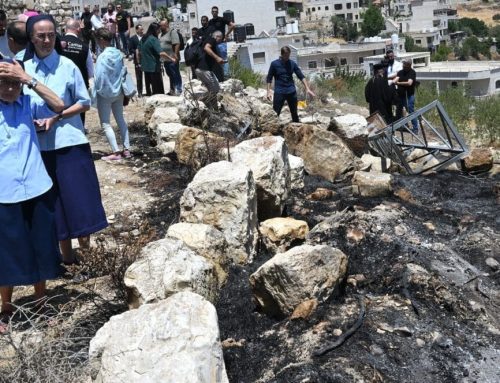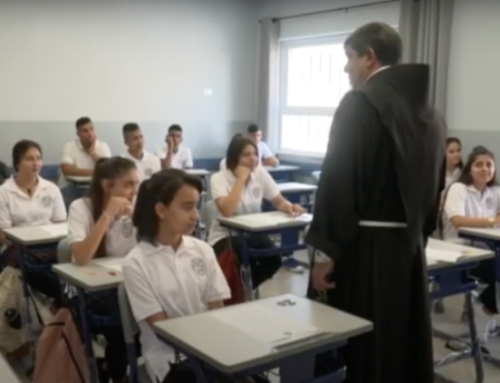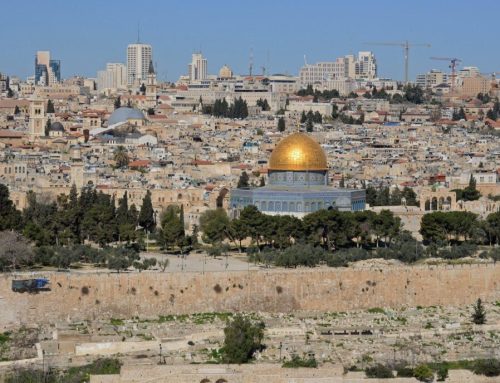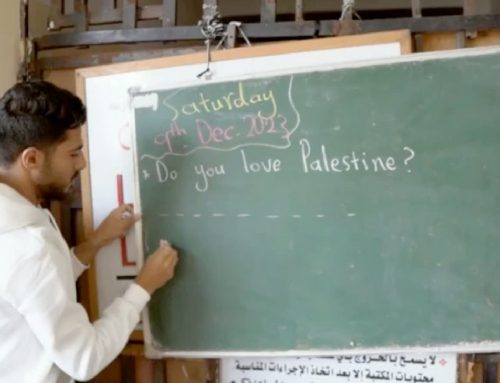
Holy Father and dear Brothers,
To get to the root of the dramatic situation of the family, let us remember that a radical change of culture is taking place both in the West and the East – the radical secularization, the absolutism of individual freedom, the autonomy of the person (even if God exists, he does not have to interfere in my life), which establishes a clear separation between faith and life.
Among the challenges we face in the Latin Patriarchate of Jerusalem, with jurisdiction over Cyprus, Israel, Palestine and Jordan:
1 . political situation – The separation wall, 730 km. long, built in 2003, is a major factor in the separation of families, parishes, clergy, and the deterioration of family atmosphere and good neighborliness. The military occupation and the culture of violence and death leaves a wound and an indelible mark in the minds of young people and thwarts their “dreams” of forming a healthy and happy family.
2. economic situation – Local men often emigrate, leaving the wife, children and the elderly at home.In contrast, migrants from Asia are women who come to us in search of work, leaving husbands and children at home.
3. Israeli law (Citizenship and Entry into Israel) – ratified by Parliament on July 31, 2003, prevents the reunification of Palestinian families. APalestinian from Jerusalem who marries someone outside of the city must leave the city and can no longer live with the husband (or wife) in Jerusalem. This is an obvious policy to clear the Holy City of Arabs. Despite many interventions at the highest levels, this law has not been repealed.
4. In instances of misunderstanding between spouses, one or both change religious affiliation to obtain a divorce from the Orthodox courtand then remarry in the Orthodox church. Unfortunately, this situation has been happening frequently and has brought about some scandal in the Christian community. The popular comment is – it is better to become Orthodox rather than convert to Islam! We fear that our faithful and the clergy are permeated with worldly mentality and secular values, and are unable to rise above the convenience of “easy divorce” and this pattern of “conversion”.
5. In marriages between a Catholic and a non-Catholic Christian, tradition has it that the woman follows the rite of the husband,yet free to be faithful to her own confession or to adopt the husband’s confession. However, the children are baptized in the Church of the husband.
6. Court delays – The long wait for responses in the process of handling matrimonial cases in both the local and Roman courts is tedious and triggers exasperation among the respondents. This drives them to change confessions and eventually marry outside the Catholic Church.
7. In a world where the tribal systemstill exists, the parents’ interference is a cause of disorientation in the lives of young couples that lead to misunderstandings and basis for separations.
1– Formation of the faithful. The directives of the Magisterium are to help pastors, clergy and consecrated persons in their mission of education and training. The faithful often ignore the law of the Gospel and the Magisterium of the Church. Today especially with social communication, programs on the themes of family should be disseminated regularly in order to educate and train the faithful. Perhaps we need a directory for the family today, with practical guidelines that the clergy, and the families can follow and adhere to in specific situations.
2- In the East, where normally there are no ‘common law unions’, or in a very limited way, where only a religious marriage is accepted, the Sacrament of Marriage requires of us to:
* Work harder at providing better staff training to teach and instill in the couple, that marriage is not only an inevitable social rite, but is regarded as a true vocation and a call from God, therefore, a free choice of the couple.
* Increasingly highlight the beauty of marriage and the dignity of the family – as Christian, wholesome and peaceful; with the ability to sanctify themselves not despite the marriage but through marriage and be a positive living witness of conjugal love and intimate relation.
3- Develop, increase and enhance means of traditional family ministry: courses for engaged couples, counseling centers, generate movements and associations for family, pastoral visits to families, intensify pastoral opportunities on special occasions in the family – anniversaries, birthdays, births, illnesses, funerals, etc.
4- “create” or “rediscover” new avenues for pastoral ministry especially with young couples:
* retreats, pilgrimages to shrines related to the family, or to sites where beatified or canonized couples have lived and where vows and promises of fidelity to one another can be renewed.
* Of significance are pilgrimages of families in the Holy Land especially to the holy city of the Holy Family. Of particular interest is the Holy Father’s desire that an International Center for the Family be built in the very near future in Nazareth.
5- Encourage participation in the Synod of the Family and launch initiatives in dioceses and parishes to publish and circulate information and messages before, during, and after the Synod, thus creating a universal awareness and understanding. Organize in each country, diocese or region conferences on the family on a regular and timely basis as appropriate.
6- That the diocesan tribunals are more concerned to find solutions or render judgments on time for couples in difficult situations. That the Roman tribunals shall have more confidence in diocesan tribunals, which are more familiar with the complex and delicate local situations. They not only focus on the legal dimension but look into the pastoral, psychological and human perspective.
7-. Articulate better pastoral care for mixed marriages, that they become an opportunity, and not a problem as intermarriages promote the unity of the Church and Christian Unity helps spouses of mixed marriages.
8 – Establish a center for the pastoral care of the family.
+ Fouad Twal
Latin Patriarch of Jerusalem






